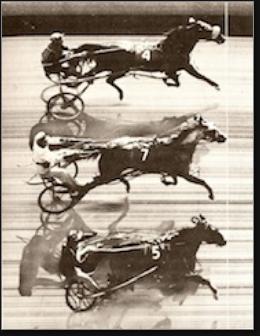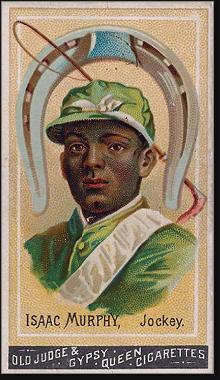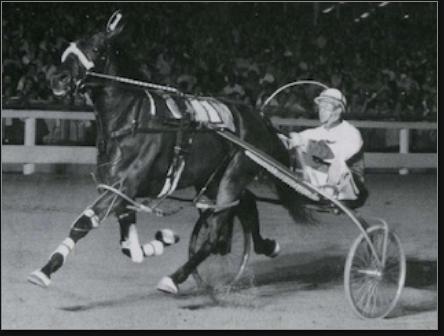It Happened in Jersey: Horse Racing

Triple Trouble
Although horse racing in Freehold dates back to the 1830s, harness racing in the town dates back to 1854, when the Monmouth County Agricultural Society held its first county fair and included a harness event. Ninety-nine years later, fans at the heralded racetrack were treated to a generation rarity in the sport: a triple dead heat.
On October 3, 1953, Patchover, Payne Hall and Penny Maid crossed the finish line simultaneously. Although triple dead heats had been declared in the past when winners were judged by the human eye, this marked the first time in harness racing history that one was captured in a photo finish. All three horses were three-year-olds and each horse’s name began with the same letter.
 Murphy’s Law Murphy’s Law
No jockey has ever dominated thoroughbred racing quite like Isaac Murphy in the 1880s. The nation’s first African-American sports superstar earned between $10,000 and $25,000 a year and regularly won half or more of the races he entered. As Murphy closed in on age 30, nagging illnesses and a battle with his weight triggered whispers among fans and owners that he might soon be through. Much of his troubles were actually due to crash dieting, which was basically starvation in Murphy's case.
On August 26, 1890, Murphy’s career took a turn for the worse during the Monmouth Handicap. Dizzy from lack of food and water, he slid off his mount, Firenze. Track officials immediately suspended him for being drunk, despite the fact there were credible witnesses to his sobriety immediately before the race.
The damage, however, was done. The New York Times reported that “a popular idol was shattered at Monmouth Park yesterday. That Isaac Murphy, who has always been considered the most gentlemanly as well as the most honest of jockeys, would have made such an exhibition of himself as he did was past belief. He rode Firenze in the Monmouth Handicap, and that he did so was alone the reason for the ridiculous way in which she was beaten, finishing last in a field of horses that she should have defeated with but little trouble."
Murphy still had some gas in the tank. In 1891, he rode Kingsman to victory in the Kentucky Derby—the one and only time the race was won by a horse owned by an African-American. In the years that followed, however, his career waned. Murphy reportedly never got over the accusations made against him at Monmouth Park that day.
Unlucky Lady
The Meadowlands Racetrack had been open only a year on March 12, 1977, but Tarport Hap had already established herself as the mare the boys couldn’t beat. In the Open Pace that evening, Tarport Hap’s 10th start of the season (she had won 8 of 9 races), driver Ben Webster was making a move on the five-horse field as he neared the quarter pole when the horse staggered to the outside of the track and collapsed.
The 5-year-old champion had 55 victories, with career winnings over $600,000, and engaged in some epic battles with Silk Stockings—her “half-sister” by Most Happy Fella. The two mares met 20 times and one or the other won 19 times. Their final meeting came in 1976 at Freehold Raceway.
Webster and track emergency crewmembers tried to revive Tarport Hap, but they were not successful. An autopsy determined she had died from a ruptured abdominal artery—not a heart attack, as initially suspected. She was buried in Paddock Park at the Meadowlands. At the end of the year, Tarport Hap was named Champion Older Pacing Mare. A stakes race for 3-year-old fillies was established in her memory.
|